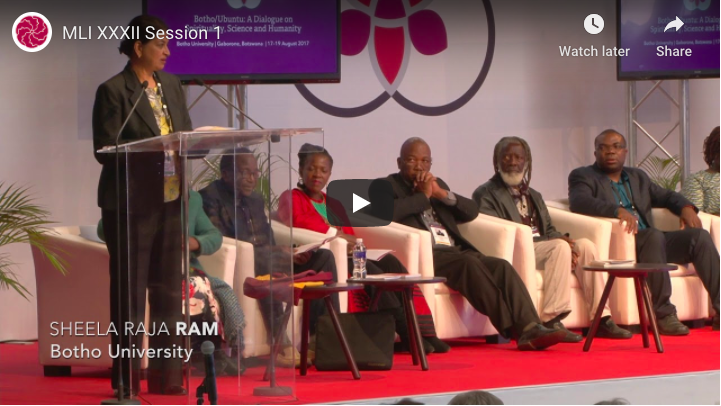The concept of Botho/Ubuntu encapsulates the fundamental values, belief systems, cosmological worldviews and livelihood practices of indigenous Africans generally and Batswana in particular. Botho/Ubuntu is manifested in the Botswana internal and external environment, and it guides the manner in which communities interact with one another and with their external environment. Tswana idioms and proverbs, and ways of naming, highlight and illustrate the centrality of humanness or humanity, and oneness with the environment.
Botho/Ubuntu also guides the configuration and processes of the Tswana socio-economic and political structures in ways that promote interdependence, peaceful coexistence and sustainable livelihoods. The reflection of Botho/Ubuntu principles in Botswana’s five national principles (Democracy, Development, Self-Reliance, Unity and Botho), has largely facilitated the country’s success in governance practices that promoted peace and coexistence (Kagisano). In recent history, embodied aspects of Botho/Ubuntu in practice are reflected in Botswana’s role in the southern African liberation struggle. Notably, the government and the ordinary Batswana opened their hearts and homes to refugees from crisis-torn southern African countries in spite of the fact that at the time, Botswana was a mere political and economic backwater. Botho has endured colonialism. Its application is however under threat from forces of cultural imperialism, capitalism and globalization. Its resilience nevertheless, gives hope for the future.

Ponatshego H.K. Kedikilwe
His Honour, Dr. Ponatshego H.K. Kedikilwe, was appointed Vice President of the Republic of Botswana on 1 August 2012. He is a graduate of Syracuse University in New York. He … MORE

Lily Mafela, MA, PhD
University of Botswana
Lily Mafela is a Professor of History and History Education at the University of Botswana in the Department of Languages and Social Sciences Education. She joined her department in 1983 … MORE


